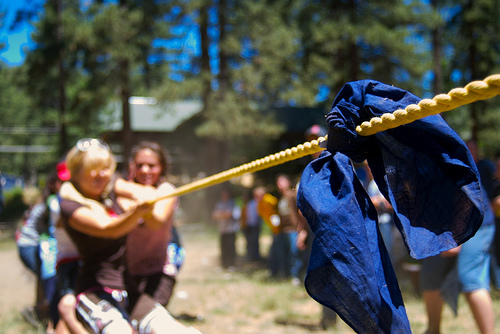Author Archives: Katie Halper
September 9, 2013 by Katie Halper
The Feminism of Camp Kinderland

Though I didn’t know the words feminism or cultural studies or film theory, I was moonlighting as a feminist film critic by the age of five. Preferring musical movies to cartoons, I would point out how films like Grease and Seven Brides for Seven Brothers were “prejudiced against women.” It wasn’t until around age seven that I started using the word sexism, after a babysitter confirmed my belief that Sandy Olsson’s changing for Danny, and not the other way around, was, indeed sexist–as was the whole kidnapping of women scene in Seven Brides. When I saw Pretty Woman, I told my parents that the movie was “feminist. Not activist feminist, but feminist.” To this day, I’m not sure what I meant exactly. But I was onto something, I’m sure.
Believe it or not, neither calling out sexism nor being obsessed with musicals made me very popular at my school. In middle school, my classmates would mock my vigilance, saying “Katie, look at the chalk board! It’s sexist, right?” Or “That volleyball is so sexist, right Katie?”
Luckily, I had a place where my feminism was embraced and not rejected: my summer camp. Founded in 1923 by Jewish communist and socialist workers, most of whom were Yiddish-speaking immigrants, Camp Kinderland was a second home to me, as it had been to my mother and my grandmother. Over the years, its politics have gotten it into trouble. It was almost shut down during the McCarthy era, and more recently it was attacked by the right wing, including Rush Limbaugh, when it was discovered that an Obama nominee had sent her children to this “extremist,” “left wing, Jewish summer camp.” The camp’s commitment to equality for women was a part of its larger commitment to equality for all, justice and fairness. Its rejection of sexism went hand in hand with its rejection of all oppressions and prejudices, whether they were based on gender, sexual orientation, race or class.
- 1 Comment
 Please wait...
Please wait...